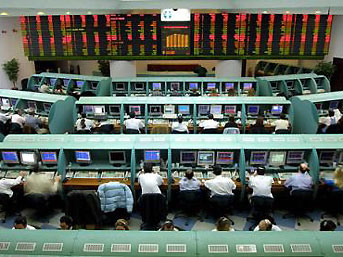Azerbaijan, Baku, June 18 /Trend T.Konyayeva/
Key reasons for failure of the first two sessions at the Iranian Oil Exchange are interference of Iran's Central Bank in setting the rial rate and the opacity of the main exchange's parameters, EU consultant on economic issues Mehrdad Emadi believes.
"The suggested currency or preferred currency as they called it in the exchange was rial, which is heavily managed by the government in terms of its value against the hard currencies," Emadi told Trend via email. "This meant that if the transactions were conducted in rial, between the time of completion of contract and payment made the time gap exposed the foreign buyers to a period of currency uncertainty mainly due to the erratic and highly politicised interventions of the Iranian Central Bank that has caused wide swings in the parity rate between rial and dollar/Euro/yen basket. This alone raised the transaction cost to foreign buyers by more than 10 percent."
Iran commenced the first oil exchange on June 1 by offering 35,000 tons of oil liquids, whilst the trading session failed due to price disagreements. The Bandar Abbas Oil Refining Company (BAORCO) put 35,000 tons of oil liquids at the price of $623.35 per ton. The customer's price offer from $610 to $622.85 was rejected.
Previously, Iran announced that it would sell 35,000 tons of 180-fuel oil at $621 per ton.
Later, on June 8, despite having two demanding customers Iran's second furnace fuel oil cargo failed to trade at Kish Island. Iran put the second furnace fuel oil cargo at $644.58 per ton.
Two customers expressed readiness to buy 70,000 tons of fuel oil from Bandar Abbas oil refinery. However, it did not sell as one of the applicants offered $640.58 while the other costumer offered $636.
According to Emadi, the exchange when it started seeking registration of interest was very opaque in terms of parameters of delivery, product quality, compensations for inadequate compliance to complete and most importantly measures to prevent speculative bids from fictitious buyers which in effect could have been commercial agents of the seller to push the price higher.
"This is a genuine problem of new exchanges which can be alleviated by ensuring maximum transparency in the identity disclosure of all bidders (all bidders wear a badge or a number through which their identity can be confirmed by other bidders)," he said. "This unfortunately did not happen and the opaqueness in the identity of buyers resulted in many buyers not participating in the bidding even though they had come to the session."
Emadi underlined the formation of this exchange was an attempt to increase foreign participation in the purchase of oil-based products and derivatives as a means to earn additional hard currencies and/or enhance the acceptance of rial as a quasi-hard currency by non-Iranian traders.
"This would lower the need for foreign hard currencies both internally and in Iran's foreign trade purchases which have created a serious fall in the foreign currency reserve during the last two years," he said. "Internationalization of Kish Exchange requires adherence to rules similar to those governing exchanges like London and Chicago which are truly market based since investors reject or at least dislike state intervention especially when the state itself is facing international pressure."
The Iranian Oil Exchange establishing euro and dirham (ADE) based pricing of oil opened on February 2008. Iran inaugurated the new phase of oil exchange with vast opportunities for foreign companies in 2010.
The Kish Exchange has traded oil-derived products until Iran included cruel oil and fuel oil on OIB product selling list.
Two major oil exchanges - NYMEX and IPE - are trading oil in US dollars worldwide.
Emadi believes the main objectives of the exchange have been to give direct access to buyers by the government in Iran and reduce the very high handling fee that the middle agents charge the government of Iran.
"The reasons mentioned by traders are the associated risks in dealing with the Iranian regime in energy, given this sector is included in sanctions," he said. "The Iranian government also wishes to use the framework of the exchange to expand its client base and avoid giving heavy discounts to the existing buyers who have shown less interest in the furnace fuel oil purchases because of certain quality issues and impurities which exceed the allowed levels as well as the new sanctions which are expected to be more restrictive."
According to Emadi, the exchange operators at Kish should have allowed "a sweetener" in form of introductory discounts in prices to compensate for early fears of failure and once initial transactions were shown to have gone through successfully and deliveries were accepted, then the operators could gradually phased out the discounts.
"This was not understood at the beginning and the lack of transparency and special discount resulted in the failure to clear transaction sales. In order to make the exchange successful they need a good spread of buyers so potential buyers bid against each other to generate interest and push the price close or above the floor price of the government," the expert concluded.
On June 14, Iran's third attempt to sell furnace fuel oil cargo was a success on international oil exchange. The Iranian oil exchange could sell an oil batch in the third attempt thanks to agreement of a seller - BAORCO - to reduce prices.






